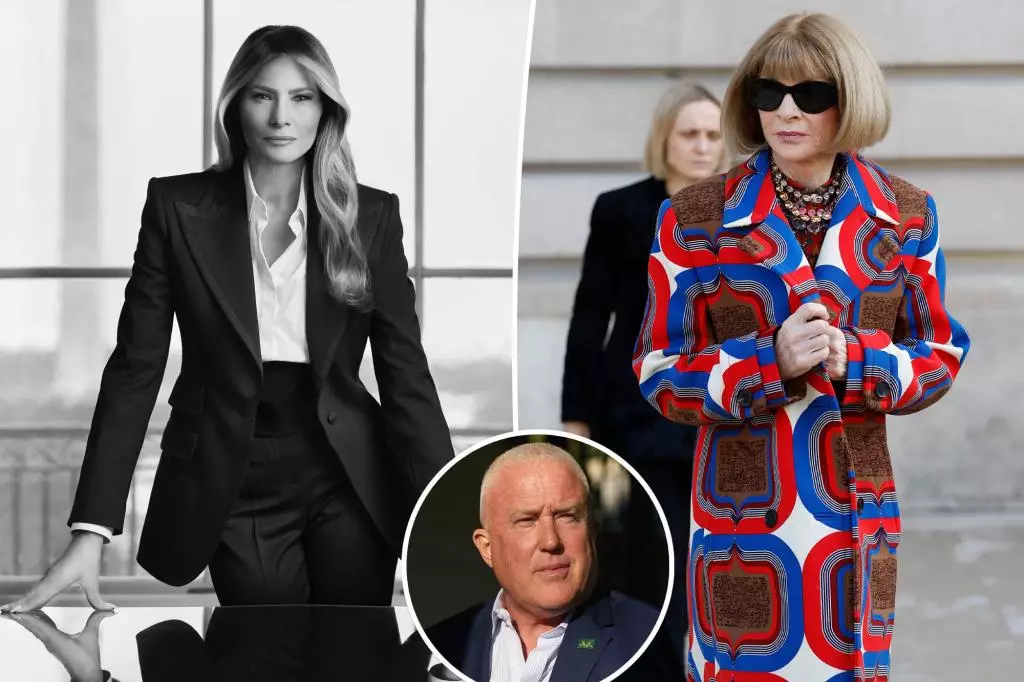The realm of fashion has long been intertwined with politics, yet few figures evoke as polarized a response as Melania Trump. While some admire her elegance and achievements, others, especially in the media, vilify her. The recent backlash against Anna Wintour’s Vogue illustrates the depth of this divide, as it reflects not only personal sentiments but broader societal implications about beauty, power, and identity.
Vogue’s recent op-ed criticizes Melania Trump in a manner that many perceive as harsh and uncalled-for. The article labeled her official White House portrait as evoking more “The Apprentice” than the dignified role of First Lady of the United States. Such commentary strikes at the heart of Melania’s public persona and raises questions about how women in positions of power are viewed and critiqued. Fashion, which often celebrates femininity and style, can become a weapon used against women who do not fit narrow expectations. Melania’s critics disparage her not just for her fashion choices but also for her perceived lack of authenticity and connection to the role she occupies.
This kind of scrutiny is not new for women in the public eye. Public figures like Melania Trump navigate a landscape where every aspect of their appearance and demeanor are dissected, often overshadowing their substantive contributions and capabilities. The snide remarks and dismissive tone mirror a longstanding trend where women, especially those who reach high office, face relentless judgment based on criteria that extend far beyond skills or policy.
In stark contrast to Vogue’s critiques, Melania’s supporters, including prominent figures from within the political sphere, have come forward to defend her. Bill White, a close friend to the First Lady, characterized her as elegant, eloquent, and an exemplary role model as a mother and wife. His comments underscore a sentiment that is often overshadowed by media narratives: Melania Trump is a figure deserving of admiration and respect, despite the controversies that swirl around her.
Statements made by her friends indicate a rejection not just of Vogue’s critique but of the larger media narrative that consistently seeks to undermine her. The remark about canceling subscriptions to Vogue as an act of defiance against its perceived bias reflects a broader cultural war where loyalty to a leader extends beyond politics to include cultural symbols. It is indicative of an audience that feels its preferences are overlooked by elite media, fostering a divide between mainstream publications and segments of the American populace.
In an intriguing turn of events, Melania Trump stated her lack of interest in gracing the cover of Vogue, indicating she believes there are more pressing matters at hand. Her dismissive attitude toward such accolades highlights a possible tactical approach to her public image, suggesting a focus on material issues and the responsibilities of her role rather than celebrity or media recognition. This response aligns with her positioning as a business-savvy individual who believes in prioritizing functionality over glamour.
The notion that Melania feels disconnected from the fashion world only adds layers to her public persona. Critics allege that her relationship with fashion brands is fraught; many designers reportedly refuse to dress her. However, this rejection may stem from a complex mix of political allegiance and personal choice, leading to a mutual disengagement that benefits neither party. As Melania continues to stand firm in her views, her actions reveal her independence and desire for authenticity, contrasting sharply with the expectations set by traditional fashion standards.
As public opinion continues to swirl around Melania Trump, her legacy as First Lady will likely be defined by her willingness to stand unapologetically in the face of criticism. The broader implications of these events reveal the ongoing struggle women face when overlapping their identities with positions of influence. Melania’s navigation of this landscape not only shapes her public image but also impacts how future political figures—particularly women—will be scrutinized for their style, actions, and the narratives they embody.
Ultimately, her story is one of resilience in a polarized environment, advocating for a nuanced understanding of women in leadership roles. The fashion industry, while often celebrated for its beauty, must reflect on its complicity in perpetuating narratives that can serve to diminish a woman’s contributions rather than highlight her multifaceted identity. As the saga continues, Melania Trump remains both a symbol of controversy and a figure of enduring interest, proving that in the intersection of fashion and politics, the conversation is far from over.

Leave a Reply